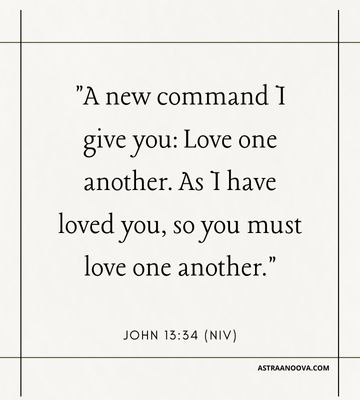Have you ever caught yourself in the midst of a moment of harsh judgment, silently critiquing a colleague’s decision or sizing up a friend’s life choices? The impulse to judge is deeply ingrained in human nature, a reflexive response that can quickly erode relationships and spiritual well-being. Biblical judgment presents a transformative alternative to our natural tendency toward criticism.
The scriptures offer a profound roadmap for understanding judgment that goes far beyond simple condemnation. Within these ancient texts lies a nuanced approach to human interactions a wisdom that challenges us to look deeper, love more compassionately, and recognize our own limitations. These 40 carefully selected verses are not mere historical artifacts, but living insights that speak directly to our daily struggles with compassion, discernment, and grace.
Jesus and the apostolic writers provide a revolutionary perspective that transforms how we view and interact with others. Instead of a punitive approach, biblical teaching invites us into a journey of understanding, restoration, and mutual growth. Each verse we’ll explore represents a thread in a larger tapestry of spiritual wisdom, offering guidance for navigating the complex terrain of human relationships.
Join us as we unpack these scriptural insights, discovering how biblical judgment can become a pathway to deeper connections, personal growth, and spiritual maturity. This exploration promises to challenge our preconceptions, soften our hearts, and provide a transformative approach to understanding ourselves and those around us.
Understanding Judgment in the Bible

The concept of judgment permeates human experience, touching the deepest corners of our interpersonal relationships and spiritual understanding. In the biblical context, judgment transcends the simplistic notion of condemnation, emerging as a nuanced principle of spiritual discernment and divine wisdom.
Jesus and the apostolic writers provide profound insights into how believers should approach the delicate art of judgment, offering a transformative perspective that challenges our natural human tendencies.
Biblical judgment is not a weapon of condemnation but a surgical tool of spiritual growth and understanding. It requires an intricate balance of truth, compassion, and humility. The scriptures reveal that true judgment originates from a place of love, not criticism, and seeks restoration rather than destruction.
The Spiritual Landscape of Judgment
When we examine the biblical narrative, we discover a multifaceted approach to judgment that defies simplistic interpretations. Paul eloquently describes this complexity in his epistles, emphasizing that judgment is ultimately a divine prerogative. The Christian community is called to a higher standard—one of discernment tempered by grace.
Defining Judgment with Biblical Insight
The scriptures present judgment as a profound spiritual practice that extends far beyond mere critique.
In Micah 6:8, we find a powerful directive that encapsulates the essence of righteous judgment: to act justly, love mercy, and walk humbly with God. This verse becomes a foundational principle for understanding biblical judgment.
The Divine Perspective
Consider the remarkable depth found in Genesis 18:25, where Abraham challenges the very concept of indiscriminate judgment. His bold inquiry, “Shall not the Judge of all the Earth do right?” reveals a fundamental truth: ultimate judgment belongs to the divine, not to fallible human beings.
Bible Verses about Judging Each Other
Genesis 18:25 (NIV)
“Far be it from you to do such a thing—to kill the righteous with the wicked, treating the righteous and the wicked alike. Far be it from you! Will not the Judge of all the earth do right?”
In this pivotal scripture, Abraham confronts the concept of divine justice, challenging the notion of treating the righteous and wicked identically. The verse underscores God’s perfect understanding and fairness.
Ecclesiastes 12:14 (NIV)
“For God will bring every deed into judgment, including every hidden thing, whether it is good or evil.”

Solomon’s wisdom provides a sobering perspective, acknowledging that every action visible and hidden will ultimately be subject to divine evaluation. This understanding encourages personal integrity and mindful living.
Matthew 7:1 (NIV)
“Do not judge, or you too will be judged.”
Perhaps the most direct biblical instruction on judgment, Jesus’ words caution against hasty condemnation. This verse invites self-reflection and humility, recognizing our own imperfections before critiquing others.
Romans 2:16 (NIV)
“This will take place on the day when God judges people’s secrets through Jesus Christ, as my gospel declares.”
Paul’s writing introduces a profound concept that judgment extends beyond external actions, encompassing the deepest motivations of the human heart. Christ’s role in this process underscores the importance of genuine spiritual authenticity.
Psalm 98:9 (NIV)
“let them sing before the Lord, for he comes to judge the earth. He will judge the world in righteousness and the peoples with equity”
This psalm celebrates divine judgment as a manifestation of righteousness. It portrays judgment not as a punitive measure, but as a demonstration of God’s justice and equity.
The Righteous Judge
God’s Role as the Ultimate Judge
The biblical narrative consistently portrays God as the supreme arbiter of justice, possessing perfect knowledge and unparalleled wisdom. This understanding demands human humility and restraint in judgment.
Key Scriptural Insights on Divine Judgment
| Scripture | Divine Judgment Principle |
| John 5:22 | Christ’s central role in judgment |
| Romans 14:10 | Universal accountability before God |
| Ecclesiastes 12:14 | Evaluation of hidden and visible actions |
John 5:22 (NIV)
“Moreover, the Father judges no one, but has entrusted all judgment to the Son,”
This verse reveals Christ’s central role in divine judgment, emphasizing the spiritual authority that transcends human understanding. It reminds believers to look to Christ as the ultimate standard of righteous assessment.
Romans 14:10 (NIV)
“You, then, why do you judge your brother or sister? Or why do you treat them with contempt? For we will all stand before God’s judgment seat.”
Paul’s counsel warns against divisive judgment within faith communities, reminding believers that we will all ultimately stand before divine judgment. This perspective fosters mutual respect and compassionate understanding.
Our Role in Judging Other Believers
1 Corinthians 4:5 (NIV)
“Therefore judge nothing before the appointed time; wait until the Lord comes. He will bring to light what is hidden in darkness and will expose the motives of the heart. At that time each will receive their praise from God.”
This passage advocates patience and spiritual discernment, cautioning against premature judgments. It encourages believers to trust in God’s timing and comprehensive understanding.
The Difference Between Righteous Judgment and Hypocrisy
Biblical wisdom distinguishes between constructive spiritual discernment and destructive, hypocritical condemnation. True spiritual judgment seeks restoration and growth, not punishment or shame.
James 4:12 (NIV)
“There is only one Lawgiver and Judge, the one who is able to save and destroy. But you—who are you to judge your neighbor?”

This verse powerfully reminds believers of the limited human capacity for true judgment, highlighting God as the ultimate Lawgiver and arbiter.
Matthew 7:3-5 (NIV)
“Why do you look at the speck of sawdust in your brother’s eye and pay no attention to the plank in your own eye?… First take the plank out of your own eye, and then you will see clearly to remove the speck from your brother’s eye.”
Jesus uses a compelling metaphorical illustration to demonstrate the importance of self-reflection before critiquing others, emphasizing personal spiritual growth over external condemnation.
Reflect Before You Judge
The biblical teachings provide profound insights into the nature of personal judgment, emphasizing the reciprocal nature of how we approach others.
Luke 6:42 (NIV)
“How can you say to your brother, ‘Brother, let me take the speck out of your eye,’ when you yourself fail to see the plank in your own eye? You hypocrite, first take the plank out of your eye, and then you will see clearly to remove the speck from your brother’s eye.”
This powerful metaphorical passage from Jesus illustrates the importance of self-reflection before attempting to critique others. The vivid imagery reveals the absurdity of judging others while remaining blind to one’s own significant shortcomings.
It challenges believers to engage in deep personal introspection, recognizing that our ability to understand and help others is directly related to our own spiritual and emotional maturity.
Romans 2:1 (NIV)
“You, therefore, have no excuse, you who pass judgment on someone else, for at whatever point you judge another, you are condemning yourself, because you who pass judgment do the same things.”
Paul’s writing cuts to the heart of human hypocrisy. This verse reveals a profound psychological and spiritual truth: those who are quickest to judge often struggle with the very same issues they condemn in others.
It’s a powerful reminder of human vulnerability and the importance of compassion and humility in our interactions.
Be Slow to Judge Others
Galatians 6:1 (NIV)
“Brothers and sisters, if someone is caught in a sin, you who live by the Spirit should restore that person gently. But watch yourselves, or you also may be tempted.”
This scripture provides a nuanced approach to addressing difficult situations within the Christian community. It emphasizes restoration over condemnation, highlighting the delicate balance of spiritual accountability and personal humility.
James 2:13 (NIV)
“Because judgment without mercy will be shown to anyone who has not been merciful. Mercy triumphs over judgment!”

The profound wisdom of this verse underscores the paramount importance of mercy in spiritual interactions. It suggests that our own spiritual standing is intimately connected to the grace we extend to others.
Encouraging Self-Reflection Before Passing Judgment
Romans 14:13 (NIV)
“Therefore let us stop passing judgment on one another. Instead, make up your mind not to put any stumbling block or obstacle in the way of a brother or sister.”
Paul’s directive challenges believers to prioritize unity and mutual support over divisive critical attitudes. The verse calls for a constructive approach that builds up rather than tears down.
1 Corinthians 11:31 (NIV)
“But if we were more discerning with regard to ourselves, we would not come under such judgment.”
This verse emphasizes the critical importance of personal accountability and self-examination. By focusing on our own spiritual journey, we become less inclined to judge others harshly.
2 Corinthians 13:5 (NIV)
“Examine yourselves to see whether you are in the faith; test yourselves. Do you not realize that Christ Jesus is in you—unless, of course, you fail the test?”
A powerful call to introspection, encouraging believers to examine their own faith and spiritual condition before critiquing others.
Love and Judgment
Prioritizing Love Over Judgment
The biblical narrative consistently presents love as the highest principle, transcending the impulse to judge or condemn.
John 13:34 (NIV)
“A new command I give you: Love one another. As I have loved you, so you must love one another.”

Christ’s commandment serves as the foundational principle for interpersonal relationships, superseding the tendency to judge.
Romans 13:8 (NIV)
“Let no debt remain outstanding, except the continuing debt to love one another, for whoever loves others has fulfilled the law.”
This passage reinforces the primacy of love, presenting it as the ultimate fulfillment of spiritual and moral obligations within the Christian community.
Galatians 5:14 (NIV)
“For the entire law is fulfilled in keeping this one command: ‘Love your neighbor as yourself.'”
The verse encapsulates the entire scriptural principle of interpersonal relationships, providing a comprehensive framework for spiritual interaction that transcends mere judgment.
Handling Criticism with Grace
Ephesians 4:2 (NIV)
“Be completely humble and gentle; be patient, bearing with one another in love.”
This scripture calls for a transformative approach to interpersonal relationships, emphasizing humility, gentleness, and patience when addressing potential conflicts or differences among believers.
Colossians 3:14 (NIV)
“And over all these virtues put on love, which binds them all together in perfect unity.”
The passage highlights love as the binding element that brings harmony and understanding within spiritual communities, elevating compassion above critical judgment.
Treating One Another with Love
1 Thessalonians 3:12 (NIV)
“May the Lord make your love increase and overflow for each other and for everyone else, just as ours does for you.”

This verse encourages continuous growth in love, promoting a spirit of compassion and mutual support that extends beyond immediate Christian circles.
1 Peter 4:8 (NIV)
“Above all, love each other deeply, because love covers over a multitude of sins.”
The scripture highlights love’s transformative power, suggesting that deep compassion can overcome potential grounds for judgment and create spaces of healing and understanding.
1 John 4:7-12 (NIV)
"Dear friends, let us love one another, for love comes from God. Everyone who loves has been born of God and knows God. Whoever does not love does not know God, because God is love. This is how God showed his love among us: He sent his one and only Son into the world that we might live through him. This is love: not that we loved God, but that he loved us and sent his Son as an atoning sacrifice for our sins. Dear friends, since God so loved us, we also ought to love one another."
These profound verses present love as the ultimate expression of divine nature, providing a comprehensive framework for spiritual relationships that transcends human limitations of judgment.
The Wisdom of Restraint
Wisdom from the Scriptures
Biblical teachings consistently emphasize the importance of measured, thoughtful responses over hasty judgments, recognizing the complex nature of human experience and spiritual growth.
Proverbs 31:9 (NIV)
“Speak up and judge fairly; defend the rights of the poor and needy.”

This verse calls for a nuanced approach to judgment that prioritizes justice and compassion, particularly for those who cannot defend themselves.
Matthew 7:2 (NIV)
“For in the same way you judge others, you will be judged, and with the measure you use, it will be measured to you.”
A sobering warning that emphasizes the reciprocal nature of judgment, encouraging believers to approach others with grace and mercy.
Luke 6:37 (NIV)
“Do not judge, and you will not be judged. Do not condemn, and you will not be condemned. Forgive, and you will be forgiven.”
Christ’s teaching provides a direct instruction to avoid judgment, instead promoting forgiveness and compassion as the highest spiritual principles.
Judgment and Spiritual Discernment
Romans 14:4 (NIV)
“Who are you to judge someone else’s servant? To their own master, servants stand or fall. And they will stand, for the Lord is able to make them stand.”
This verse provides a profound reminder of divine sovereignty, cautioning believers against assuming the role of ultimate arbiter in another’s spiritual journey.
1 Corinthians 4:3 (NIV)
“I care very little if I am judged by you or by any human court; indeed, I do not even judge myself.”

Paul’s reflection demonstrates the importance of maintaining personal integrity over seeking external validation or judgment, emphasizing internal spiritual accountability.
James 5:9 (NIV)
“Don’t grumble against one another, brothers and sisters, or you will be judged. The Judge is standing at the door!”
A powerful warning against destructive criticism and complaint within the Christian community, highlighting the immediacy of divine oversight.
Galatians 6:3 (NIV)
“If anyone thinks they are something when they are not, they deceive themselves.”
This scripture challenges self-deception and encourages genuine humility in spiritual life, warning against prideful judgment of others.
1 Corinthians 4:5 (NIV)
“Therefore judge nothing before the appointed time; wait until the Lord comes. He will bring to light what is hidden in darkness and will expose the motives of the heart. At that time each will receive their praise from God.”
The verse ultimately points to divine timing and understanding, cautioning against premature or superficial judgments and emphasizing the complexity of human motivation.
Top 5 Bible Verses about Judging Others

1. Matthew 7:1 (NIV)
“Do not judge, or you too will be judged.”
A direct call to avoid judgmental attitudes, emphasizing the reciprocal nature of judgment.
2. Luke 6:37 (NIV)
“Do not judge, and you will not be judged. Do not condemn, and you will not be condemned. Forgive, and you will be forgiven.”
An invitation to forgiveness over condemnation, presenting a transformative approach to interpersonal relationships.
3. Romans 14:10 (NIV)
“You, then, why do you judge your brother or sister? Or why do you treat them with contempt? For we will all stand before God’s judgment seat.”
A reminder of mutual accountability and the ultimate divine perspective on human interactions.
4. James 4:12 (NIV)
“There is only one Lawgiver and Judge, the one who is able to save and destroy. But you—who are you to judge your neighbor?”
An acknowledgment of divine judgment that challenges human presumption.
5. 1 Corinthians 4:5 (NIV)
“Therefore judge nothing before the appointed time; wait until the Lord comes. He will bring to light what is hidden in darkness and will expose the motives of the heart. At that time each will receive their praise from God.”
A call to patience and trust in divine timing, emphasizing the limitations of human understanding.
Conclusion
The biblical perspective on judgment offers a profound transformation of human interpersonal dynamics. Jesus and the apostolic writers provide a nuanced approach that transcends simple condemnation, inviting believers into a deeper understanding of grace, compassion, and spiritual growth.
Understanding biblical judgment is not about restriction but liberation freedom from the burden of condemnation and an invitation to profound spiritual connection. It challenges us to:
- Recognize our own human limitations
- Approach others with compassion
- Seek restoration rather than condemnation
- Prioritize love over criticism
- Trust in divine wisdom and timing
The scriptures reveal judgment as a spiritual practice rooted in love, mercy, and humility. It calls believers to a higher standard of interaction one that recognizes human complexity while maintaining a commitment to spiritual truth.
Ultimately, the biblical guidance on judgment invites us to see beyond surface-level critique, developing a deeper, more nuanced approach to understanding human experience. It transforms our relationships, offering a path of healing, growth, and mutual understanding.
As Paul reminds us, our primary calling is to love-to love God and to love one another. In this profound simplicity lies the most powerful antidote to destructive judgment.
FAQ’s
How should Christians approach judging others according to the Bible?
Christians should approach judgment with humility, love, and a desire for restoration, always recognizing personal fallibility and seeking to understand rather than condemn.
Can we ever judge others in a positive way?
Yes, positive judgment involves gentle correction, accountability, and genuine concern for another’s spiritual and personal growth, always motivated by love.
What is the difference between judging and discerning?
Judging implies a final, often harsh verdict, while discerning is about understanding and perceiving without passing ultimate judgment, focusing on wisdom and compassion.
Is it wrong to judge the actions of others if they are clearly wrong?
Recognizing wrong actions is acceptable, but the biblical approach emphasizes addressing such situations with humility, love, and a goal of restoration rather than condemnation.
How does love impact our ability to judge according to the Bible?
Love transforms judgment from a punitive action to a compassionate opportunity for understanding, growth, and spiritual support, always prioritizing the well-being of the individual.
What God says about judging others?
God emphasizes that ultimate judgment belongs to Him, calling believers to approach others with mercy, compassion, and a recognition of their own imperfections.
What are the two types of judging?
The two types are condemning judgment (which is discouraged) and righteous judgment (which seeks understanding, restoration, and spiritual growth).
What does the Bible say about being judged wrongly?
Scripture teaches that wrongful judgment reflects more on the person judging than the person being judged, and warns that the measure of judgment we use will be applied to us.
Who am I to judge another when I walk imperfectly verse?
Romans 2:1 directly addresses this, stating that those who judge others condemn themselves, as they often struggle with the same issues they criticize.
What Bible verse says to judge righteously?
John 7:24 instructs believers to “stop judging by mere appearances, but instead judge correctly,” emphasizing discernment based on spiritual understanding.

Multilingual faith educator exploring connections between language, spirituality, and dream symbolism.


















